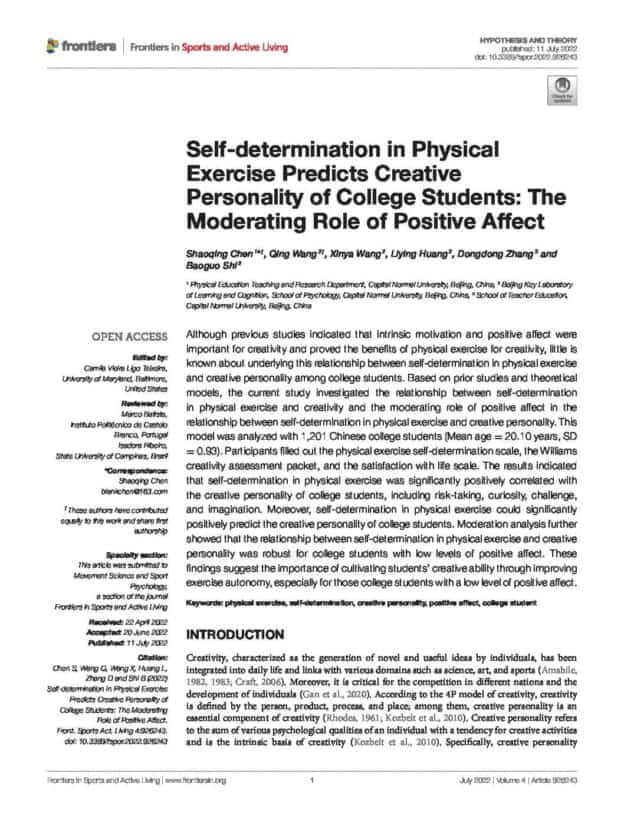Abstract
Although previous studies indicated that intrinsic motivation and positive affect were important for creativity and proved the benefits of physical exercise for creativity, little is known about underlying this relationship between self-determination in physical exercise and creative personality among college students. Based on prior studies and theoretical models, the current study investigated the relationship between self-determination in physical exercise and creativity and the moderating role of positive affect in the relationship between self-determination in physical exercise and creative personality.
This model was analysed with 1,201 Chinese college students (Mean age = 20.10 years, SD = 0.93). Participants filled out the physical exercise self-determination scale, the Williams creativity assessment packet, and the satisfaction with life scale. The results indicated that self-determination in physical exercise was significantly positively correlated with the creative personality of college students, including risk-taking, curiosity, challenge, and imagination. Moreover, self-determination in physical exercise could significantly positively predict the creative personality of college students. Moderation analysis further showed that the relationship between self-determination in physical exercise and creative personality was robust for college students with low levels of positive affect. These findings suggest the importance of cultivating students’ creative ability through improving exercise autonomy, especially for those college students with a low level of positive affect.



Responses